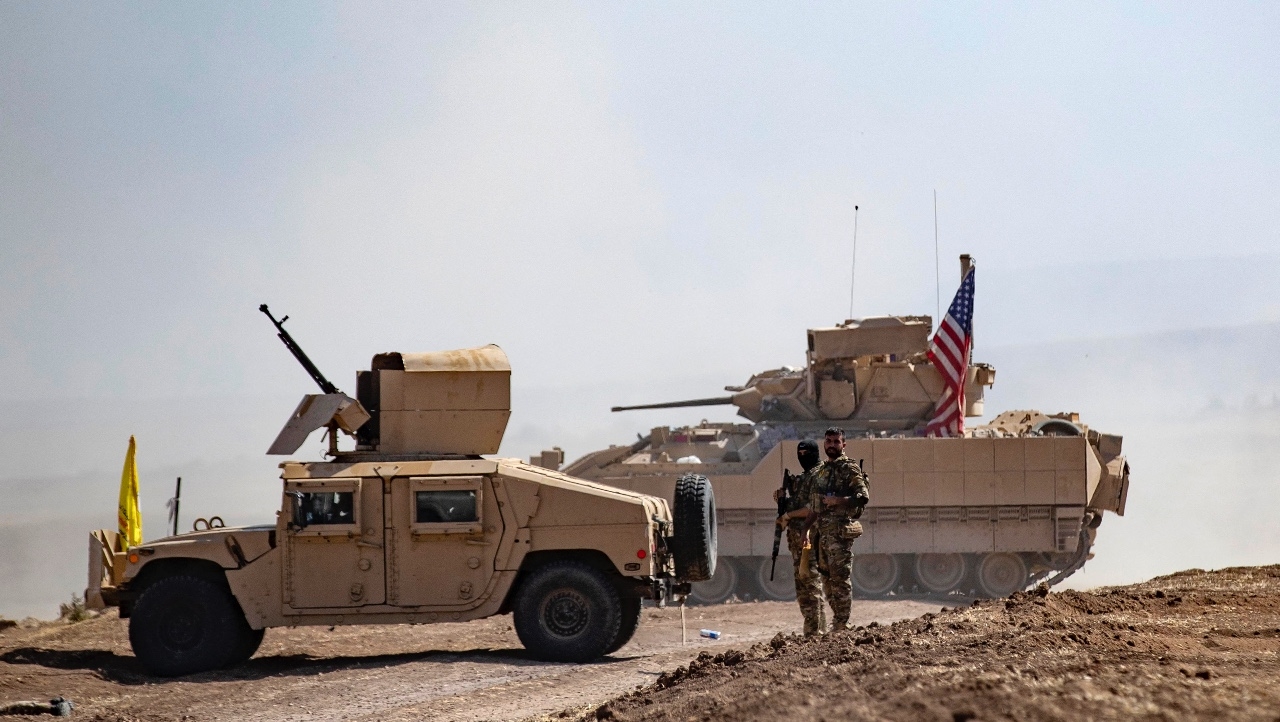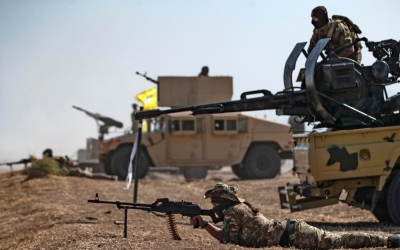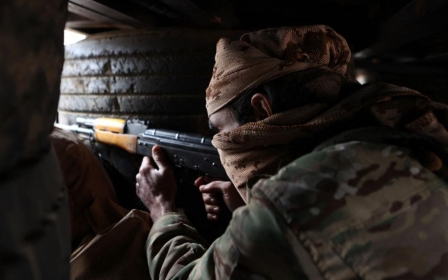US and SDF stop all joint operations against Islamic State amid Turkish bombing

The Syrian Democratic Forces, a US-backed militia made up primarily of Kurds, announced on Friday that they had stopped all joint counter-terrorism operations with the United States against the Islamic State group as a result of Turkish attacks on its territory.
The move was confirmed by the US military, which said in a statement that US forces in the region had "paused all partnered operations" against the Islamic State group in Syria.
Turkey already controls vast swathes of northern Syria, which it invaded with the aim of stamping out Kurdish militants on its border. Ankara has been conducting an artillery and air campaign in the region for weeks, and Turkish officials have warned a ground invasion could be imminent.
On Wednesday, US Defense Secretary Lloyd Austin told his Turkish counterpart that Washington was in "strong opposition to a new Turkish military operation in Syria".
White House spokesman John Kirby reaffirmed the US position on Friday, stating: "We also don't want to see anything that would affect our ability to continue to put the pressure on ISIS and to affect our partnership with the SDF," adding that previous Turkish military actions had made the SDF "less willing to continue to contribute to counter-ISIS" operations.
The US has backed the SDF with military assistance and conducts joint operations with the group, which it sees as the most effective fighting force against IS.
Turkey, however, views the SDF as an extension of the Kurdistan Workers' Party, which has waged a decades-long war for independence against Turkey. The US considers the group, known as the PKK, a terrorist organisation, but differentiates it from the SDF.
With the threat of a new Turkish invasion looming, the SDF has gone public, pleading with its US ally to rein in Ankara. However, analysts and former senior US officials tell Middle East Eye that Washington's overtures to Turkey may fall on deaf ears.
The areas of Syria which Turkey has said it will target do not contain US troops, and fall within Russia's sphere of influence in the north-west of the country. Washington has also been courting Ankara as it looks to keep Nato united over the war in Ukraine.
Middle East Eye delivers independent and unrivalled coverage and analysis of the Middle East, North Africa and beyond. To learn more about republishing this content and the associated fees, please fill out this form. More about MEE can be found here.





